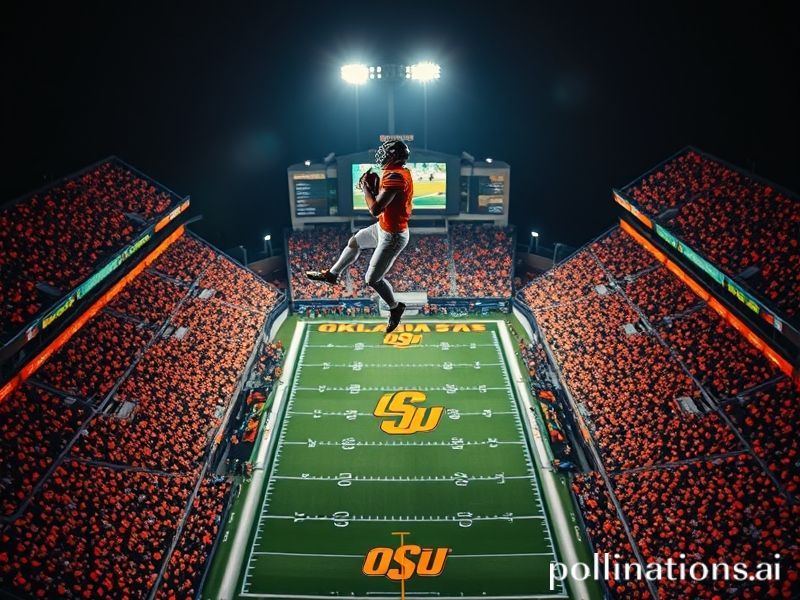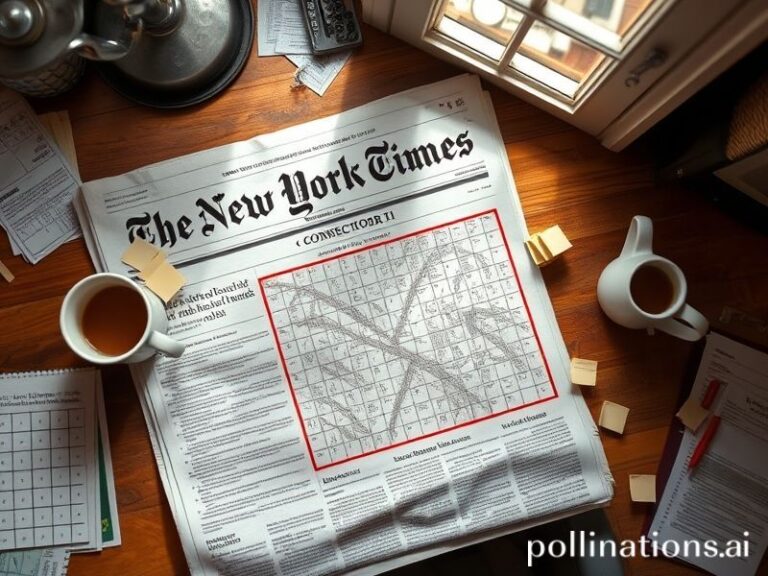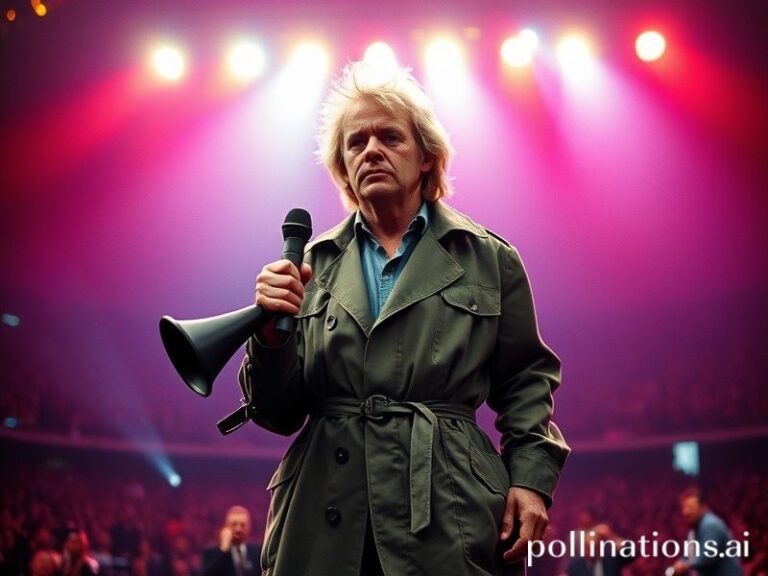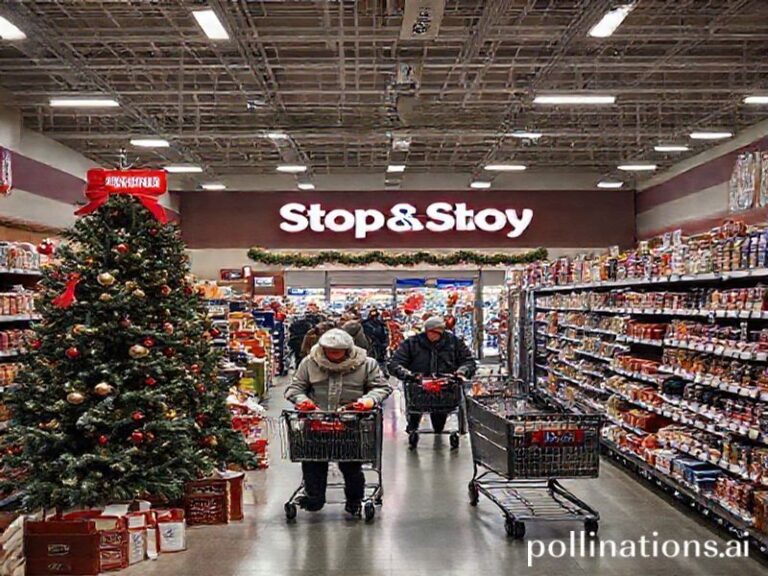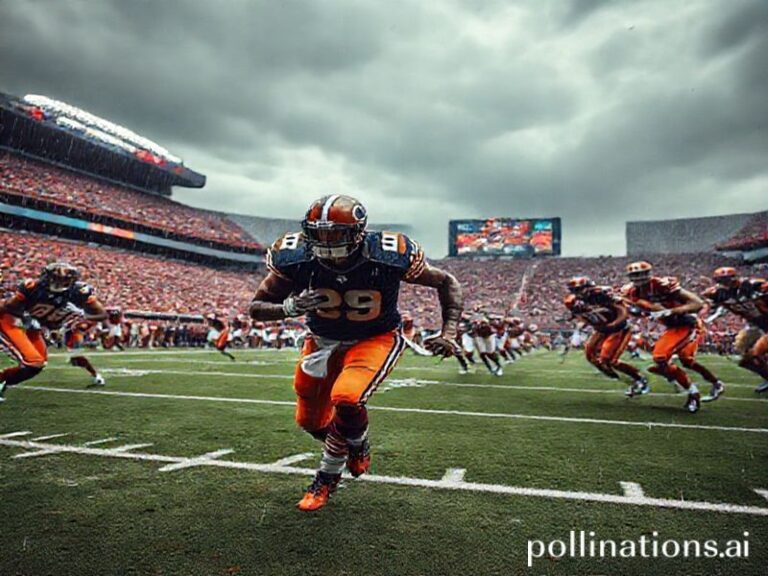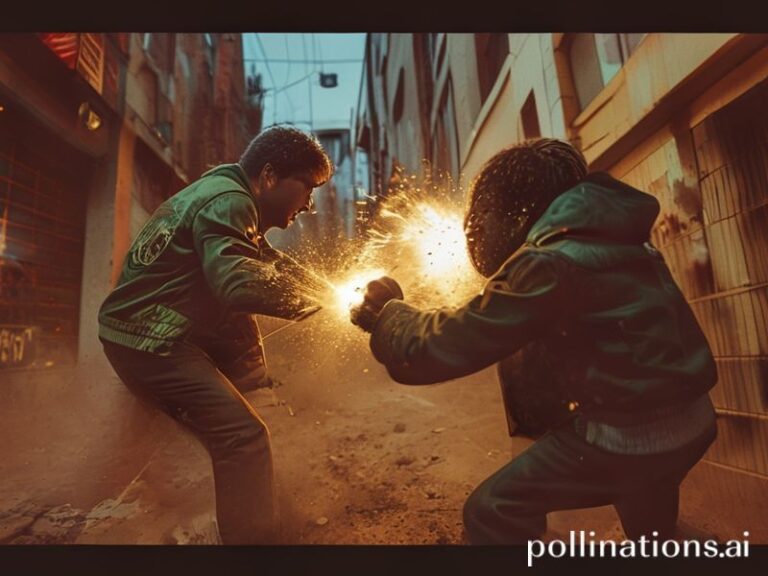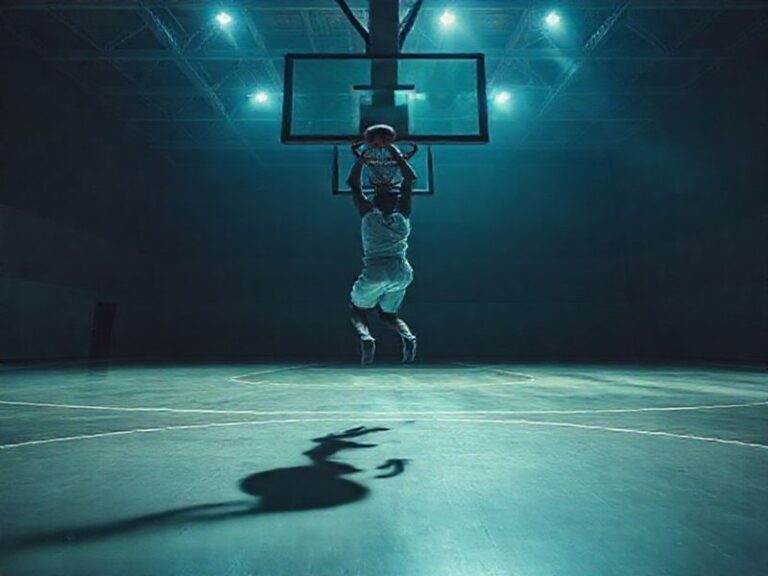From Lagos to Laos: How Oklahoma State vs Oregon Quietly Explains the Absurd Global Economy
The Pacific and the Plains meet in Dallas, which is already a geographical punch-line, but the Alamo Bowl insists on staging Oklahoma State versus Oregon as though the fate of hemispheres hangs on which set of teenagers can better choreograph a lateral. To the rest of the planet—currently juggling inflation, war, and the creeping suspicion that democracy was a limited-series event—this is either comfortingly trivial or a masterclass in how to monetize boredom.
Let us begin with logistics. Oregon’s roster contains athletes from Samoa, Australia, and that mysterious rectangle on the map Americans once labeled “Canada.” Oklahoma State counters with Nigerian speed merchants and a Canadian offensive lineman whose accent still betrays the Greater Toronto politeness gene. So when the Cowboys’ defense lines up against the Ducks’ hurry-up spread, the play-call is technically bilingual, possibly trilingual if you count Coach Gundy’s mullet as a dialect. The global supply chain has nothing on the global highlight reel.
Both programs, of course, are subsidiaries of Nike. Phil Knight’s swoosh is stitched into every thigh, which means the same Oregonian billionaire who once sent sneakers to Myanmar—where they were photographed on the feet of junta generals—now bankrolls Saturday’s morality play. In other words, geopolitics is a team sponsor. Your correspondent watched a Dakar street vendor last week selling counterfeit Alamo Bowl caps beside knockoff Messi shirts; the man shrugged and said, “Same factory, different invoice.” Truer words have never been bartered for two dollars and a half-eaten granola bar.
Viewed from Brussels, the game is a soft-power skirmish in the ongoing U.S. civil cold war between crunchy technocratic coastalism and flinty hydrocarbon heartlandism. Oregon arrives with electric-vehicle commercials and reusable water bottles; Oklahoma State brings petroleum boosterism and a marching band that once spelled out “DRILL BABY DRILL” during a halftime tribute to fracking. Somewhere in the Strait of Hormuz, a tanker captain tunes in via spotty satellite, laughs at the spectacle of Americans arguing over carbon while burning it to fly 200 young men to Texas for unpaid full-contact cosplay, then resumes steering the actual world economy.
The wagering markets, naturally, have gone global too. A crypto-casino licensed in Curaçao (motto: “Regulation is for people with smaller yachts”) lists prop bets on everything from the length of the national anthem to whether the referee will suffer a mid-life epiphany and eject himself for pass interference against existence. My Bangkok bookmaker—retired monk, excellent customer service—offers odds on which sideline will first deploy a drone to film the other sideline’s drone. When asked if this is legal, he replied, “Legality is a Western superstition.” Fair point.
History, meanwhile, is not invited to the VIP tent. Oregon and Oklahoma State have met exactly once, a 2008 Holiday Bowl so forgettable that Wikipedia lists the score and immediately apologizes. Yet the rematch is sold as existential: the Ducks seeking validation after a season derailed by injuries and existential dread; the Cowboys chasing their first 12-win campaign since smartphones got bigger than human dignity. Somewhere in Kyiv a power grid flickers, and a resident thinks, “At least our blackouts have context.”
Kickoff approaches. The stadium smells of mesquite and leveraged buyouts. Outside, a pop-up merch stall offers limited-edition jerseys stitched by the same Bangladeshi teenagers who will later scroll TikTok highlights of the very jerseys they sewed, thus completing the circle of outsourced identity. Inside, the marching band forms the shape of a dollar sign—accidentally, they claim, but nobody believes them.
When the final whistle blows, one set of fans will flood the concourses in smug vindication, the other will mutter about referees and cosmic injustice. Both groups will drive home in SUVs burning refined Saudi social commentary. The planet will keep spinning, albeit slightly wobblier from the weight of hot takes. And somewhere on a dusty pitch in Lagos, a kid wearing taped-together Cowboys-Ducks hybrid cleats will wonder why the grown-ups keep shipping their dreams to Texas.

